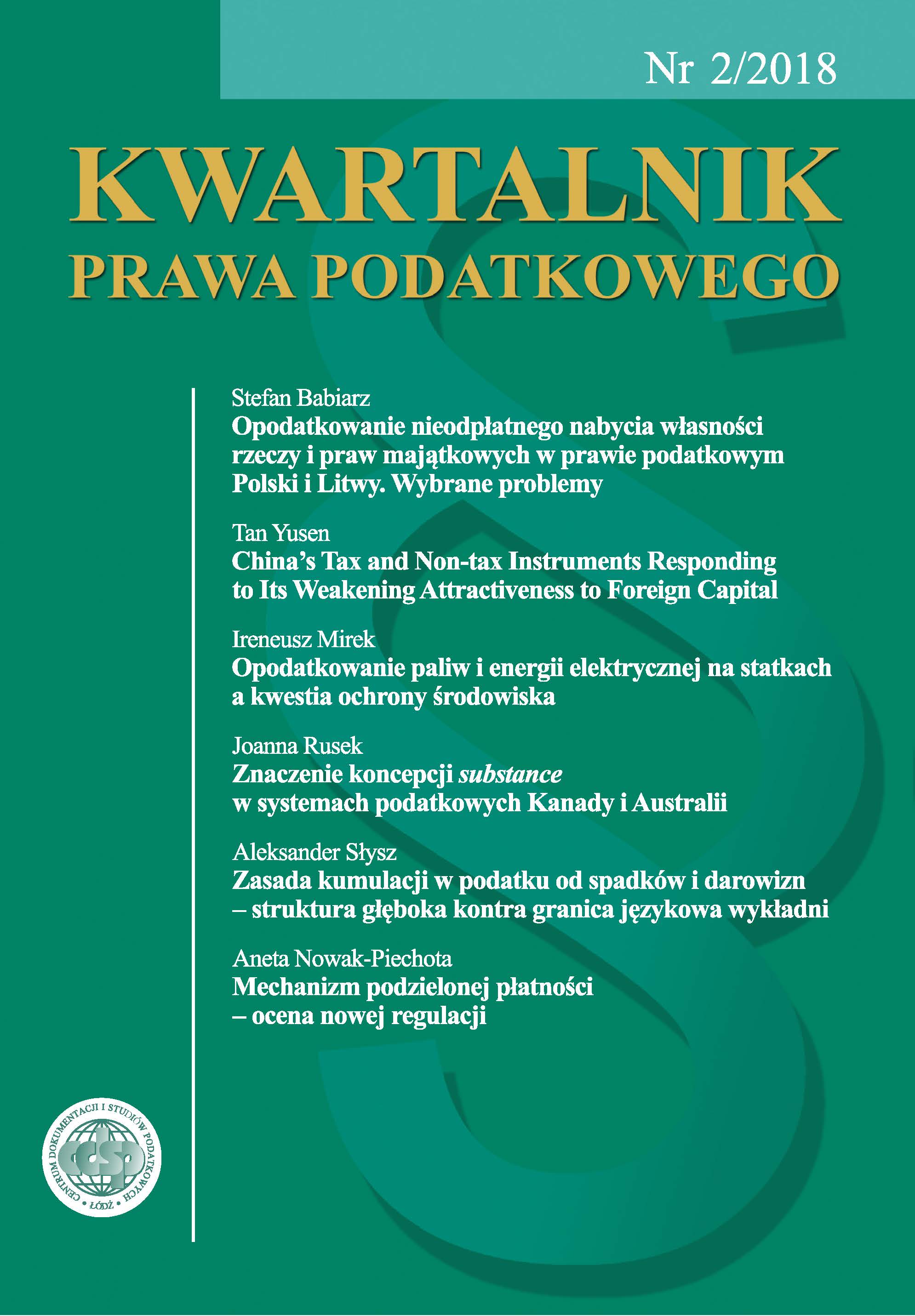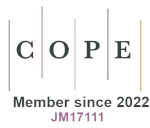Znaczenie koncepcji "substance" w systemach podatkowych Kanady i Australii
DOI:
https://doi.org/10.18778/1509-877X.2018.02.04Słowa kluczowe:
unikanie opodatkowania, treść ekonomiczna, klauzula przeciwko unikaniu opodatkowaniaAbstrakt
Problematyka artykułu koncentruje się wokół zagadnienia treści ekonomicznej (substance) i jej znaczenia w systemie podatkowym. W szczególności celem artykułu jest zbadanie, w jaki sposób koncepcja substance jest wykorzystywana w systemach podatkowych Kanady i Australii. W krajach tych nie przyjęły się tzw. sądowe doktryny orzecznicze przeciwko unikaniu opodatkowania, tak charakterystyczne zwłaszcza dla Stanów Zjednoczonych. Pomimo to zarówno w Kanadzie, jak i w Australii element rzeczywistej treści ekonomicznej działań podatników jest uwzględniany w sposób pośredni, w ramach obowiązujących w tych krajach klauzul ogólnych przeciwko unikaniu opodatkowania.
Pobrania
Bibliografia
Alarie B., Duff D.G., The legacy of UK tax concepts in Canadian income tax law, „British Tax Review” 2008, no. 3.
Google Scholar
Arnold B.J., Li J., Justice Bowman on Substance over Form, „Canadian Tax Journal” 2010, vol. 58.
Google Scholar
Australian Government. The Board of Taxation. Review of the debt and equity tax rules. Discussion Paper, marzec 2014, http://taxboard.gov.au/files/2015/07/Debt_Equity_Discussion_Paper.pdf (dostęp: 28.01.2018).
Google Scholar
Azzi J., Spotless: A Lesson in Form and Substance but not in Substance over Form, „Revenue Law Journal” 1998, vol. 8.
Google Scholar
Brzeziński B., Anglosaskie doktryny orzecznicze dotyczące unikania opodatkowania, Toruń 1996.
Google Scholar
Cassidy J., Peabody v FCT and Part IVA, „Revenue Law Journal” 1995, vol. 5.
Google Scholar
Cassidy J., „To GAAR or Not to GAAR – That is the Question”: Canadian and Australian Attempts to Combat Tax Avoidance, „Ottawa Law Review” 2005, vol. 36, no. 2.
Google Scholar
D’Ascenzo M., Part IVA: Post Spotless, „Journal of Australian Taxation”, lipiec/sierpień 1998.
Google Scholar
Duff D.G., The Supreme Court of Canada and the General Anti-Avoidance Rule: Canada Trustco and Mathew, „Bulletin for International Taxation” 2006, vol. 60, no. 54.
Google Scholar
Duggan A., Ziegel J.S., Girgis J., 449 – Shell Canada Limited: A New Taste of the Economic Substance over Form, „Canadian Business Law Journal” 1998, vol. 30.
Google Scholar
Freedman J., Converging Tracks? Recent Developments in Canadian and UK Approaches to Tax Avoidance, „Canadian Tax Journal” 2005, vol. 53, no. 4.
Google Scholar
Kujinga B., The UK general anti abuse rule: Lessons for Australia?, „eJournal of Tax Research” 2016, vol. 14, no. 3.
Google Scholar
Li J., „Economic Substance”: Drawing the line between legitimate tax minimization and abusive tax avoidance, „Canadian Tax Journal” 2006, vol. 54, no. 1.
Google Scholar
Olesińska A., Klauzula ogólna przeciwko unikaniu opodatkowania, Toruń 2013.
Google Scholar
Philipps L., The Supreme Court of Canada’s Tax Jurisprudence: What’s wrong with the rule of law, „Canadian Bar Review” 2000, vol. 79.
Google Scholar
Toryanik T., The Concept of Substance in International Taxation. Australia, „International Transfer Pricing Journal”, listopad–grudzień 2014.
Google Scholar
Tretola J., Comparing the New Zealand and Australian GAAR, „Revenue Law Journal” 2017, vol. 25, no. 1.
Google Scholar
Wilkie S.J., Canada: Substance in International Taxation, „International Transfer Pricing Journal”, wrzesień–październik 2014.
Google Scholar
Pobrania
Opublikowane
Jak cytować
Numer
Dział
Licencja

Utwór dostępny jest na licencji Creative Commons Uznanie autorstwa – Użycie niekomercyjne – Bez utworów zależnych 4.0 Międzynarodowe.
PlumX metrics









